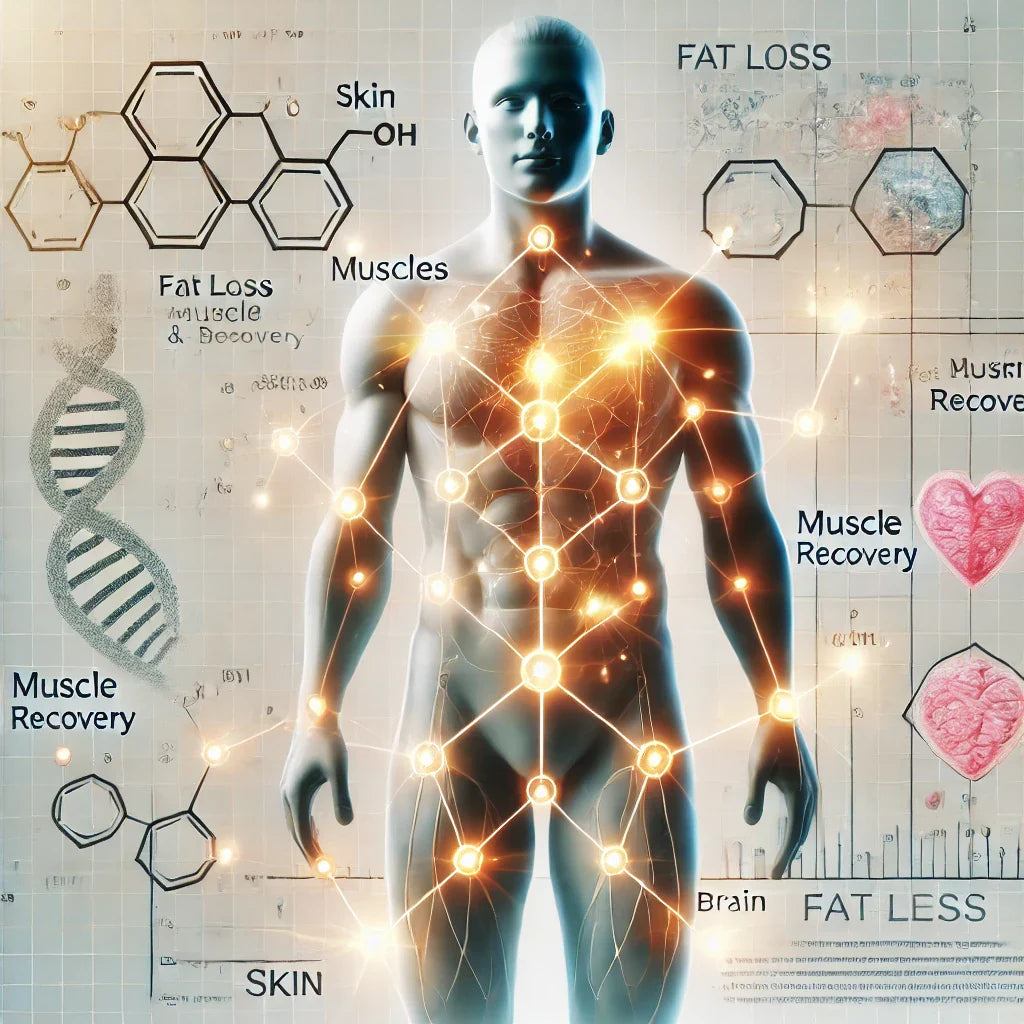
Peptides: Enhancers, Not Fixers – Here’s What You Need to Know
Imagine your car. It’s a reliable ride, but over time, it’s showing signs of wear. Maybe you’ve upgraded the stereo for better sound, added some seat covers for comfort, or even installed a sleek spoiler for aesthetics. All these upgrades enhance your car's functionality and appearance, making your drive more enjoyable.
But what happens when the engine light comes on? Slapping on a shiny decal or upgrading your GPS won’t solve the underlying issue. You’d take the car to a mechanic to address the root problem because surface-level fixes can’t repair a failing engine.
The same concept applies to peptides and your body.
What Are Peptides?
Peptides are short chains of amino acids, the building blocks of proteins. They act as messengers in your body, instructing cells to perform specific tasks. From repairing tissues to optimizing metabolic processes, peptides are powerful tools for enhancing your body’s natural functions.
Here’s what makes peptides so unique:
- Targeted Functionality: Peptides work by binding to specific receptors, activating precise pathways in the body. For example, some peptides stimulate collagen production, while others boost growth hormone release.
- Natural Synergy: Peptides mimic processes already occurring in the body, meaning they enhance rather than override natural mechanisms.
Peptides as Enhancers, Not Fixers
Think of peptides as high-performance upgrades for your body. They’re tools that amplify your efforts, whether it’s improving skin health, boosting recovery, or supporting weight loss. Here are some common peptide categories and their uses:
-
Fat Loss
Peptides like GLP-1 receptor agonists (e.g., Semaglutide) help regulate appetite and improve fat metabolism, complementing a healthy diet and exercise regimen. -
Muscle Growth and Recovery
Peptides like CJC-1295 and Ipamorelin stimulate the natural production of growth hormone, aiding in muscle repair and recovery after workouts. -
Skin and Anti-Aging
Collagen-boosting peptides improve skin elasticity, while Melanotan enhances tanning by increasing melanin production. -
Joint and Injury Repair
Peptides like BPC-157 and TB-500 promote tissue repair and reduce inflammation, speeding up recovery from injuries.
The Limitations of Peptides
While peptides can be transformative, they are not magic wands. They cannot fix foundational issues on their own. To illustrate:
- Hormonal Imbalances: Peptides like CJC-1295 can support growth hormone levels, but if you’re dealing with severe hormone deficiencies, you may need hormone replacement therapy first.
- Chronic Inflammation: Peptides can help reduce inflammation, but if your diet and lifestyle continually fuel inflammation, the peptides' effects will be limited.
- Weight Loss Resistance: Peptides like Semaglutide can suppress appetite, but without addressing poor dietary habits or a sedentary lifestyle, the results will be short-lived.
Address the Root Cause First
Before considering peptides, take a moment to evaluate your overall health. Think of your body as a house. If you notice a crack in the wall, would you simply hang a beautiful painting to hide it? Or would you repair the foundation first?
When approaching health challenges, consider these steps:
-
Identify the Root Cause
- Are you dealing with a hormonal imbalance, poor gut health, or chronic stress?
-
Fix the Foundation
- Implement sustainable lifestyle changes such as improving your diet, exercising regularly, and managing stress.
-
Use Peptides as Support
- Introduce peptides to complement and enhance your progress.
Practical Examples: Peptides in Action
-
For Hormonal Deficiencies:
If you’re addressing low testosterone or growth hormone levels, peptides like Ipamorelin can amplify the effects of hormone replacement therapy. -
For Weight Loss:
Begin with a balanced diet and regular exercise. Peptides like Semaglutide can help regulate appetite, making it easier to stick to your plan. -
For Joint Pain or Injury Recovery:
Start by reducing physical strain and optimizing your diet to combat inflammation. Add peptides like BPC-157 to speed up recovery. -
For Skin Health:
Focus on hydration, sun protection, and a nutrient-rich diet. Peptides like GHK-Cu can then promote collagen production for a youthful glow.
How to Use Peptides Effectively
To maximize the benefits of peptides, integrate them thoughtfully into your health plan. Here are some tips for success:
-
Consult a Healthcare Professional
Always work with a qualified practitioner to identify the right peptides for your needs and ensure safe usage. -
Combine with Healthy Habits
Peptides are most effective when paired with a strong foundation of nutrition, exercise, and sleep. -
Start with Realistic Expectations
Understand that peptides enhance your efforts – they don’t replace them. Be patient and consistent with your overall health journey.
Peptides Are Part of the Bigger Picture
Peptides work best when they’re part of a comprehensive health plan. They’re not a shortcut or a cure-all. Instead, think of them as amplifiers that can help you achieve your goals faster and more effectively.
Before diving into peptides, ask yourself:
- What underlying issues do I need to address first?
- What changes can I make to strengthen my health foundation?
- How can peptides enhance the results of my efforts?
By focusing on the bigger picture, you’ll not only experience better results but also enjoy long-term improvements in your overall well-being.
Final Thoughts
Peptides are powerful tools, but they require a balanced, thoughtful approach. The next time you’re tempted to ask, “What’s the best peptide for [X]?”, remember to dig deeper. Focus on understanding the root causes of your health challenges and use peptides as part of a holistic strategy to improve your life.
When you treat peptides as enhancers, not fixers, you unlock their full potential – helping you create a stronger, healthier, and more vibrant version of yourself.

Leave a comment